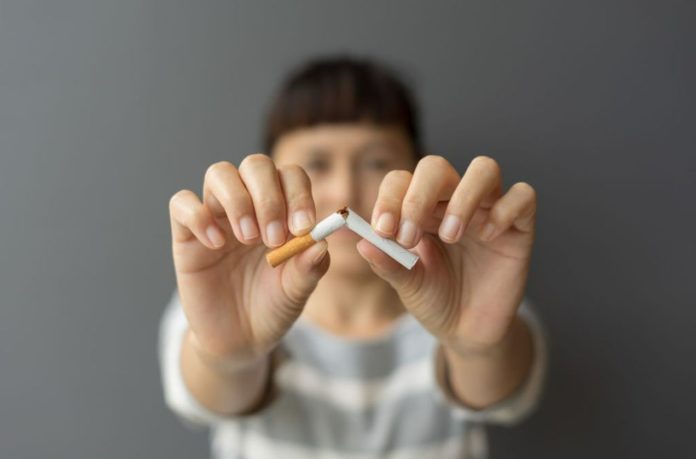One in every five smokers also drinks heavily, yet they have a harder time quitting than non-drinkers and are frequently omitted from smoking cessation trials.
Knowing how difficult it can be to quit smoking, the authors of the study, set out to find a treatment that could aid smokers in quitting, particularly those who call themselves heavy drinkers.
It’s easy to dismiss binge drinking and smoking as “bad habits,” but biological mechanisms connect the two. To this point, the study author’s previous research has shown that the more alcohol consumption, the stronger the desire to smoke, and that when smokers are given images of smoking, alcohol activates brain reward pathways quickly.
“Instead of blaming them, I thought, if we could find treatments that could help them, that would really help because they are at risk for health consequences that are worse than using either substance alone,” said the author of the study.
The team wanted to see if smokers who also drink heavily could benefit from a combination treatment, which combines two pharmacological regimens instead of just one. They wondered if combining treatments that have been shown to be effective in the past would help this group quit smoking.
During the 12-week research, they offered 122 smokers who were also heavy drinkers either nicotine replacement treatment (in the form of a nicotine patch) in combination with the smoking cessation medicine varenicline, or placebo. Participants were asked to indicate whether or not they were quitting smoking between weeks nine to twelve. Individual claims were corroborated by a laboratory test conducted during week 12.
The study’s findings demonstrated that the combination of nicotine replacement therapy and varenicline was certainly more effective at smoking cessation, with 44.3 percent of participants abstaining from smoking throughout the study’s final weeks. In contrast, just 27.9 percent of those who received nicotine replacement therapy plus a placebo were still smoking at the end of the research. The combo medication was similarly well tolerated by the majority of individuals, with no serious adverse effects.
Surprising side effect of treatment: reduced drinking
The study authors were startled to see that participants in the trial from both groups reduced their drinking rates as well. Male participants drank more than 14 drinks per week at the start of the study, whereas female participants drank more than seven drinks per week. Every week, they all had at least one binge drinking day (at least four to five drinks). However, by the end of the trial, individuals’ weekly drinking days had fallen by 25 percent. Contrary to expectations, this was true in both the combined treatment and the nicotine replacement-alone treatment groups. Since neither varenicline nor nicotine replacement had previously been demonstrated to reduce smoking rates among smokers, it was unclear why the trial participants cut back on their drinking.
The team did not expect drinking rates to change much, if at all, during this study.
“I was hoping the combination treatment would improve smoking quit rates, that was our hypothesis. But seeing the results, I thought, what is the placebo group doing reducing their drinking? We didn’t expect that to happen,” the authors added.
While participants were not directly told to reduce their drinking, they were asked about their drinking in surveys throughout the study.
“We didn’t necessarily address drinking strongly in the behavioral counseling, but it was mentioned as a trigger for smoking, like caffeine and other substances,” they said.
However, simply inquiring about participants’ drinking habits and seeing how closely the two substances are linked may have led them to cut back on their drinking in order to boost their odds of quitting smoking.
“They didn’t get comprehensive alcohol treatment, but they really had a reduction in drinking once they paid attention to it and were asked about it regularly,” the lead author added. “So, it might have been them intuitively knowing that connection and saying, ‘I’m going to have to make a change.’”
While further research is needed to establish exactly what helped these smokers quit drinking heavily, the findings of this study show that tackling both addictions at the same time may be synergistic and lead to better overall health outcomes than previously assumed.
Source: 10.1001/jamanetworkopen.2022.0951
Image Credit: Getty
You were reading: Two drugs are better than nicotine alone for smokers who drink heavily
